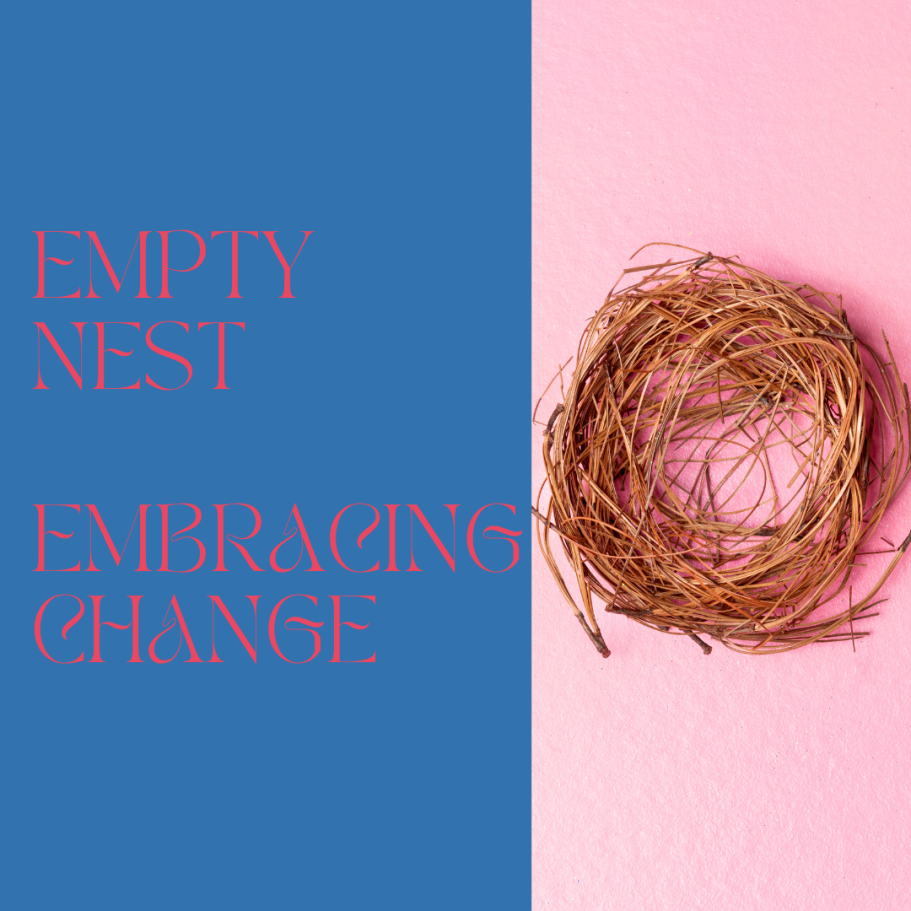If you find yourself grappling with the challenges of empty nest syndrome, know that you're not alone.

Embracing the Next Chapter: Thriving Through the Empty Nest Transition
Empty nest syndrome isn't a clinical diagnosis, but rather a profound emotional phase that many parents experience as their last child leaves home. It marks a significant transition, often accompanied by feelings of grief, loneliness, and uncertainty about one's identity and purpose.
If you find yourself grappling with the challenges of empty nest syndrome, know that you're not alone. It's natural to feel a range of emotions during this time, from sadness to restlessness to anxiety about the future. However, acknowledging these feelings is the first step toward finding support and navigating this transition with grace..
Counselling and support from professionals like me can be invaluable resources for working through empty nest syndrome. Through therapy, you can explore your emotions in a safe and supportive environment, gaining insight and coping strategies to manage this period of change effectively.
But what exactly are the symptoms of empty nest syndrome? You might experience a sense of redundancy, feeling like your role as a parent has shifted now that your children are independent. Persistent sadness and depression, worry and anxiety about your child's well-being, and restlessness in the face of newfound free time are also common experiences.
Pre-emptively preparing for empty nest syndrome, or "pre-empty nest syndrome," can also be beneficial. Here are a few tips to help you navigate this transition:
Focus on Self-Care:
Prioritise your own well-being by indulging in activities that bring you joy and fulfilment. Whether it's yoga, painting, or picking up an old hobby, self-care is essential for maintaining your emotional health.
Rediscover Old Passions:
Reconnect with activities and interests that you enjoyed before becoming a parent. Investing time in your own passions can reignite your sense of purpose and identity outside of parenting.
Build Your Support Network:
Seek out connections with friends, join new groups, or engage with other parents experiencing similar emotions. Building a support network can provide comfort, companionship, and understanding during this transitional period.
Plan for the Future:
Embrace the opportunities that come with newfound free time by exploring new interests, pursuing further education, or considering career changes. Your future is full of possibilities, and embracing them can help you navigate the empty nest phase with optimism and excitement.
While empty nest syndrome can be challenging, it's also an opportunity for personal growth and self-discovery. By seeking support from professionals and implementing self-care strategies, you can navigate this transition with resilience and grace, embracing the next chapter of your life with enthusiasm and purpose.
If you're experiencing the feelings and struggles of an empty nest, reach out and together we can find a path forward.
We need your consent to load the translations
We use a third-party service to translate the website content that may collect data about your activity. Please review the details in the privacy policy and accept the service to view the translations.

